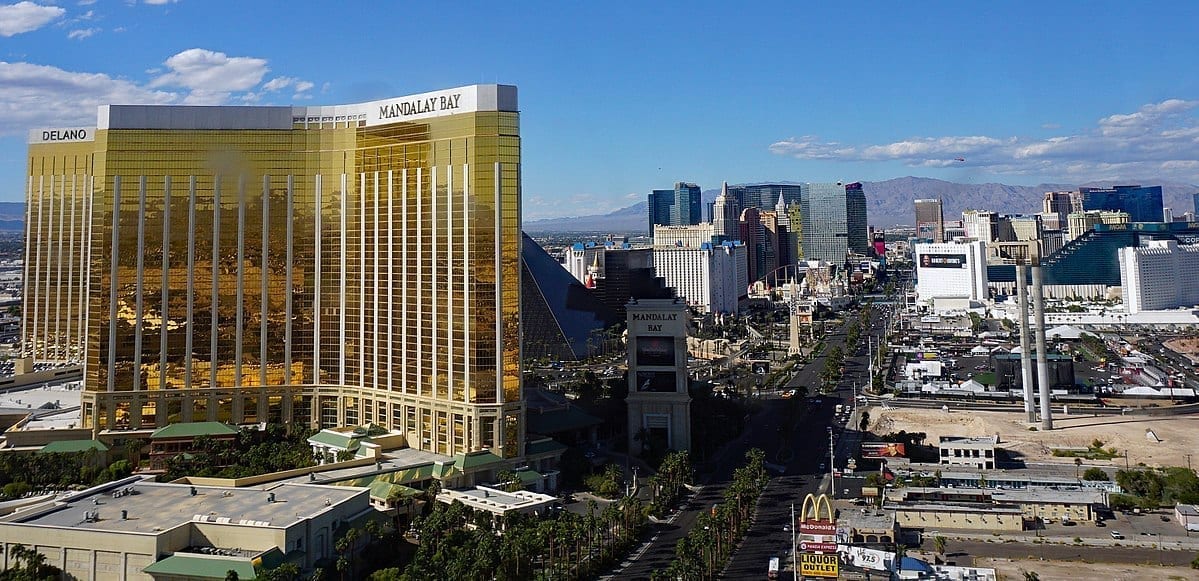Nearly a year after Stephen Paddock shot hundreds of concertgoers from his suite in the Mandalay Bay Casino and Resort, parent company MGM Grand is suing the victims to protect itself from further liability.
The New York Times describes the move as ‘audacious,’ hinging on an interpretation of federal law that’s never been tested in court. Analyst Craig A. Newman suggests that the outcome could have far-reaching consequences, ‘for both victims and companies targeted by terrorists and cybercriminals.’
In total, MGM has filed nine lawsuits in federal courts across the country. Some 2,500 victims are named in the complaints, which were placed in Nevada, California and New York.
MGM, writes Newman, owns Mandalay Bay, the high-rise resort from which Paddock targeted attendees of the Route 91 music festival.
Within the space of just 10 minutes, Paddock killed 58 concertgoers and injured nearly a thousand more. The mass shooting is considered the worst in modern American history.
The casino’s unsavory move to limit its liability has been described as ‘utterly reprehensible.’ Yet, as Newman notes, the suit isn’t about ‘victims or monetary damages.’ MGM is asking judges to rule on its rights, hoping to restrict its responsibility in what some consider an attack of terror.
The Times says the suits focus on the Support Antiterrorism by Fostering Effective Technologies Act of 2002, often referred to as the Safety Act. Under its provisions, companies which develop ‘innovative security products and services’ are sheltered from litigation arising from an “act of terrorism.”

The Safety Act was originally introduced to curb the financial fallout of the September 11th terror attacks, which spawned numerous lawsuits against a host of companies.
Lawmakers, hoping to avoid the litigatory madness of another major attack, included in the Safety Act a measure that’d cap victims’ damages and permit only a single lawsuit or “federal cause of action.” But in order for MGM to employ the Act in its strategy of offensive defense, it has to show that its security products are Safety Act-complaint.
MGM and its attorney say that the security firm they hired to protect Route 91 was Safety Act-compliant. So, even if MGM itself isn’t covered by the Act’s provisions, its liability would be limited in line with its security vendor.
But the company’s arguments are fraught with peril. Newman says there are “plenty of challenges and novel legal issues” ahead, including whether MGM’s use of a Safety Act-complaint firm has any impact on its responsibility to compensate victims of the massacre.
Moreover, law enforcement has yet to call Paddock’s killings an act of terror.
Even though police and federal agents have scoured the man’s possessions and electronic devices, investigators have yet to reveal any motive for the shootings. If Paddock was, in fact, just a disgruntled or mentally ill man with no ideological reason for murder, the Las Vegas massacre wouldn’t fit any practical definition of ‘terror.’
Sources
Families of Las Vegas shooting victims ‘disgusted,’ ‘insulted’ at MGM’s lawsuit
Suing Las Vegas Victims Got Headlines. Outcome Could Be Big News, Too.


Join the conversation!